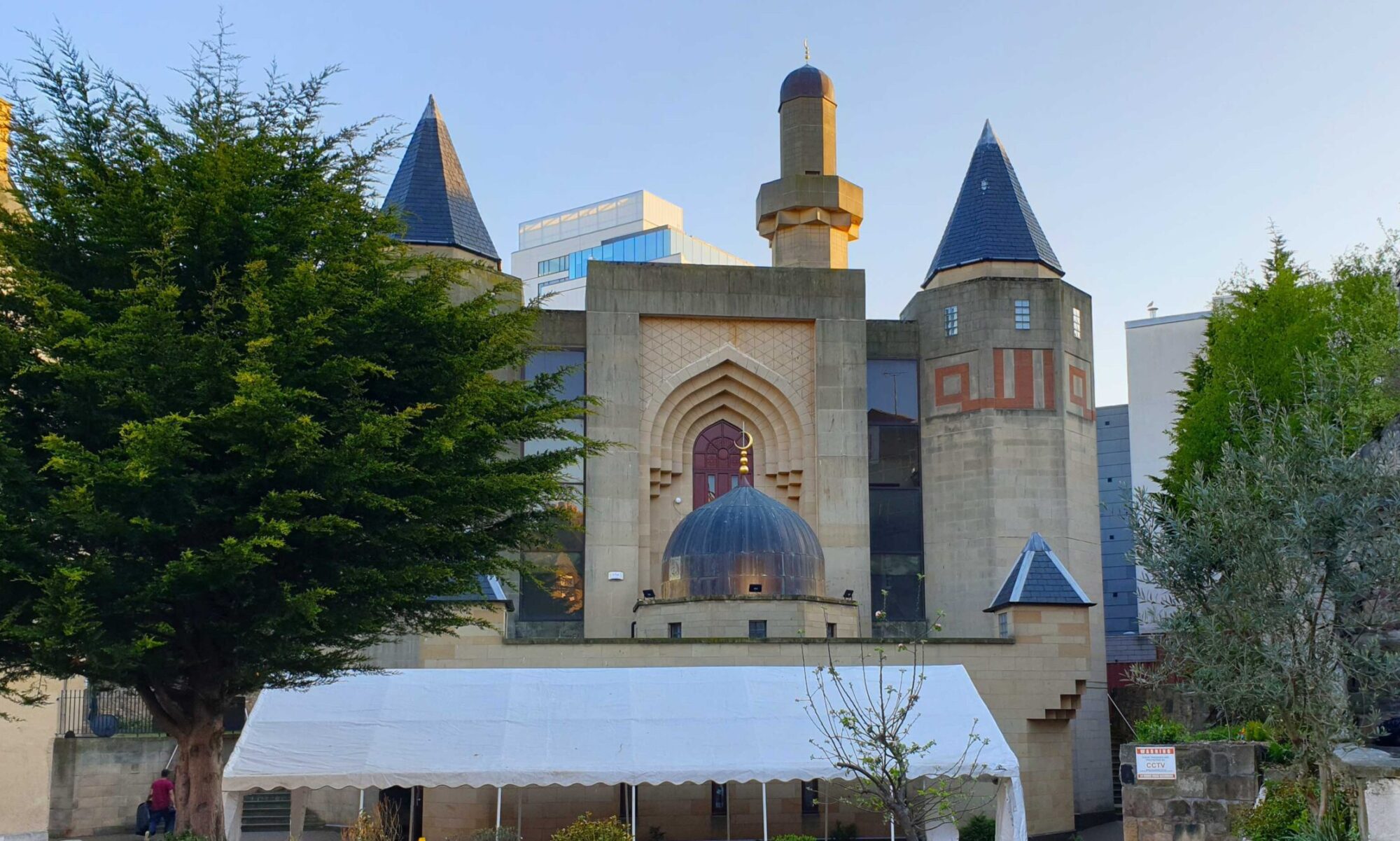No, it’s not Edinburgh Central Mosque’s Lawrence of Arabia. It’s actually Mr. John Clifford, Honorary Consul of Austria for Scotland who came to visit us today. You’re probably wondering by now: how on earth do the other parts – the Agal and Christmas fit into the picture? Well, it goes like this. John called us sometime midweek describing a “ring” worn around a “headscarf” and was seeking advice on how to acquire one.
“Could you please send us a picture John so we can see how we can help?” was our reply. “I might as well send you a picture of the king of Saudi Arabia, he wears one.” John’s words cleared up all the haziness for us. Straight away, I said: “John, you want an Agal.” To his relief and my convenience, I had an Agal lying around in my office drawer. “I even had the full robe! We made an appointment for the Honorary Consul of Austria to come in and pick up this distinctly Arabian package. No questions were asked over the phone, but of course, I was dying to find out more about this rather interesting request.
This is where Christmas comes in! And we found the story quite touching and moving. John has been invited to a Christmas event, and instead of attending with the prescribed Santa hat, he thought why not add a touch of authenticity and creativity by adopting – as close as possible – the mode of dress of the people of the region that the Messiah Jesus was born in! Now, of course we were going to welcome John with Arabian coffee and have a good chat especially when he just shared his idea.
John has a keen interest in interfaith, and this wasn’t the first time he would cross the borders of two or more religions. He shared with us that last year, he actually gave the grace at the 73rd annual dinner of the Consular Corps in Edinburgh borrowing from the Muslim tradition. The public reaction, he told us was of course very mixed, but the Austrian Ambassador in London loved it because he, as then Head of Cultural Affairs in Austria actually organised the celebrations of the centenary of Austria’s official recognition of Islam as a religion in 1912 – Europe’s first country to do so.
We went on to discuss contemporary European politics, Brexit, immigration and the challenges facing our communities. In this world of complex problems, we need to be able to come together, learn from one another and see the things we share. The meeting was therefore a highlight of our day, and we certainly hope for further occasions where we can come together and learn more from one another. Nice one John of Arabia!















